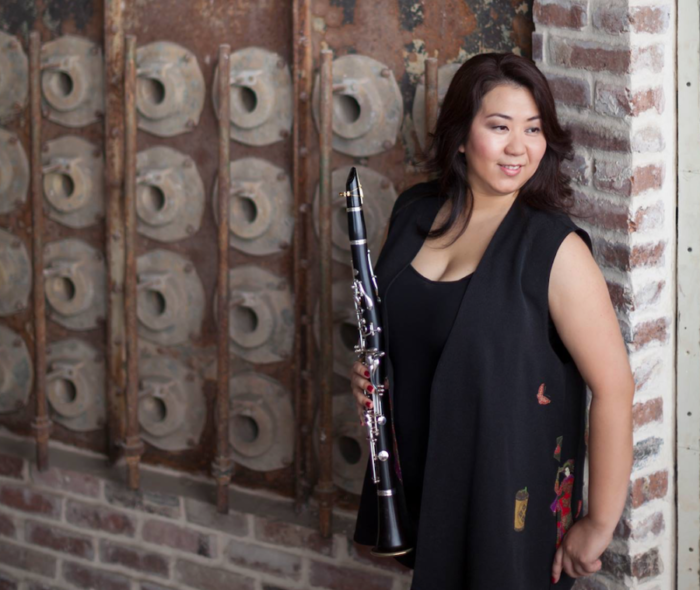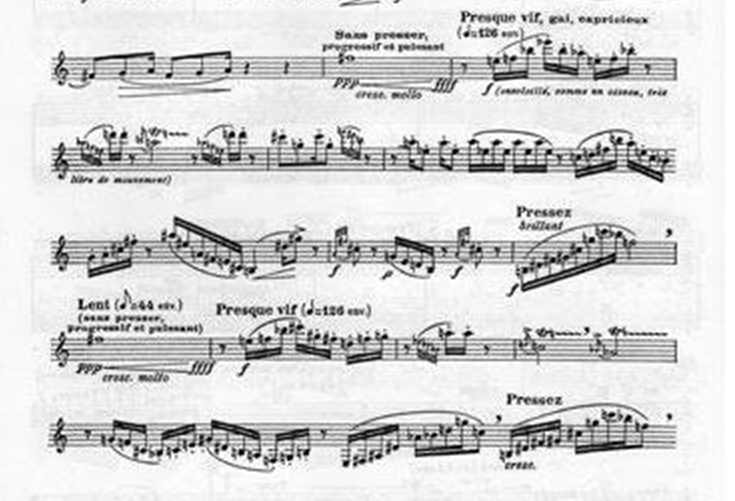
Messiaen’s “Quartet for the End of Time” isn’t casual listening.
It’s a work that changes people’s relationships to art’s ability to change paradigms through emotional experiences. In fact, an emotional experience is why ROCO clarinetist Maiko Sasaki suggested that the ensemble include a performance of the seminal work in its Unchambered Series.
Q: Messiaen’s quartet is one of those works that deeply affects listeners, especially during live performance. Do you remember the first time you heard the piece? How did it affect you?
Maiko Sasaki: My first experience with this piece was actually my own performance. It was quite an experience!
After the last note was played, everyone including musicians and the audience sat in a strange but comfortable silence. No one dared break the silence with applause. I believe we were experiencing “the timelessness” and inexhaustible hope that Messiaen was trying to convey with his music. The piece was inspired by the Book of Revelation and it does have Christian references. But whether you are a Christian or not, whether you are a classical music fan or not, we all felt in that silence that there was some kind of power that is beyond human
Q: Sounds intense.
MS: The experience was haunting. I have never felt such a feeling with any other music. Since then, I have attended some performances and experienced a similar effect. Strangely, it happens only in live music. There are many great recordings, but they don’t give the same experience. So you have to listen to this piece live to understand what I am describing.
Last year, ROCO’s reed trio (oboe, clarinet and bassoon) performed at the Holocaust Museum Houston. Alecia Lawyer was the oboist, and she gave us a tour of the museum. She was really good. In fact, she used to work there as a tour guide.
Q: How did experiencing the Holocaust Museum Houston affect you?
MS: Daniel Chrisman, the bassoonist, and I were devastated after the tour. The performance went very well because of the emotional connection in that space, but it was really devastating. I felt my soul needed to be saved from this devastating state. So after the performance, I said to Alecia that we have to play Messiaen’s Quartet. We needed hope. Our spirits needed to be elevated.
Q: The pieces is interesting in that there are plenty of solo passages for each instrument. How does Messiaen write for clarinet?
MS: Messiaen adored the clarinet and called it an “instrument of love.” Le Boulaire, the premiere violinist, said, “…whenever he explained a passage containing a birdcall, he would hum, imitating the clarinet’s very sweet sound.” You will hear the birdsongs on the clarinet throughout the piece, the third movement of the Quartet “Abyss of Birds” was especially composed for a clarinet solo with a lot of birdcalls.
Q: Many composers used to clarinet to represent birds, though some used the flute.
MS: Messiaen was not the first composer to employ birdcalls in music. For example, Beethoven used imitations of birdcalls in his “Pastoral” symphony. Messiaen said, “All of these bear very little resemblance to real-life bird songs, except for the cuckoo because it’s so easy to imitate!”
It is very challenging to express accurate birdcalls.

Q How so?
MS: It requires fast fingers and tonguing. The clarinet has a large reed and it takes time for the reed to respond. Short tonguing requires very fast and precise movements of the tongue. As you may have noticed, the tongue is not the most dexterous part of your body — it takes some special skills to play. In addition, the tongue has to be coordinated with super fast finger movements, which are like birds fluttering their wings.
The clarinetist Henri Akoka, who premiered the piece, protested to Messiaen, “It cannot be done. It is impossible to play.” But Messiaen kept telling him “But you are doing it! You are getting there!”
Messiaen pushed the limit of the clarinet technique at that time and it has become common by today’s standard.
___
The ROCO Unchambered series continues with Messiaen’s “Quartet for the End of Time” on Sunday, November 22, 5 pm at the MATCH (Midtown Arts and Theater Center Houston). General admission tickets are $25; students tickets are $15.

Leave A Reply